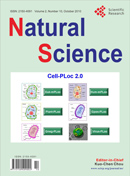 When the first sentence of a science paper reads like this, you might think you’re in for quite a ride:
When the first sentence of a science paper reads like this, you might think you’re in for quite a ride:
Jumping out of an airplane may seem like a crazy and scary thing to do, but for a skydiver it is a fun and exciting experience.
Unfortunately for the authors of an earlier version of that paper comparing gamblers and skydivers, published in 2011 in the Scandinavian Journal of Psychology, the ride was short-lived, according to a retraction notice just published: Continue reading Psychologists take a gamble on using data about risky behavior, and are forced to retract a paper







